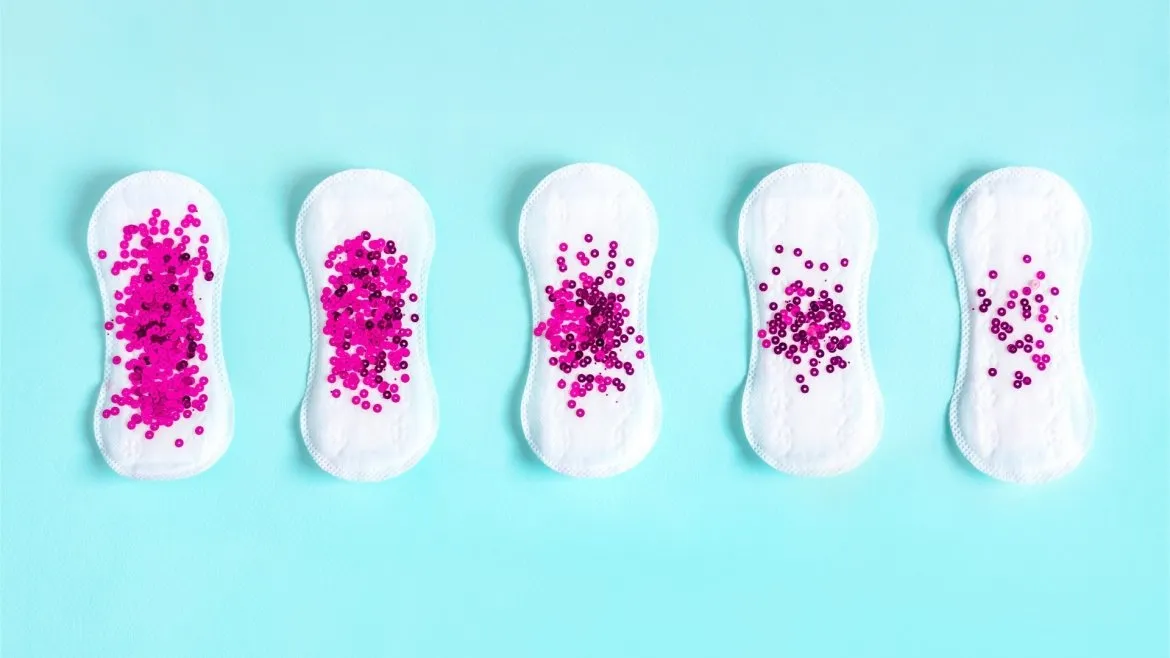Are you one of the countless women who have wondered why some periods are heavier than others? It’s a common question that often arises during discussions among women. The truth is, that the monthly menstrual period can vary widely from woman to woman. Factors such as age, hormonal changes, and overall health can all play a role in determining the heaviness of your flow.
So, here we will discuss the reasons behind these variations and find out why some women experience heavier periods than others.
Contents
Why are Some Periods Heavier Than Others?

When it comes to periods, every woman’s experience is unique. While some women have lighter periods that last just a few days, others may have heavier flows that can last longer. So why do some periods tend to be heavier than others?
Hormonal Factors: Hormones play a crucial role in regulating your menstrual cycle, and imbalances can lead to heavier periods. Estrogen and progesterone levels fluctuate throughout the month, and if the balance between these hormones is disrupted, it can result in a heavier flow.
Age and Life Stages: Age also influences the heaviness of your period. During adolescence, when your menstrual cycle is still establishing itself, you may experience irregular periods and heavier flows. On the other hand, as you approach menopause, your periods may become irregular and vary in flow, including heavier or lighter bleeding.
Uterine Abnormalities: Conditions like fibroids, polyps, or adenomyosis can cause heavier periods. Fibroids are non-cancerous growths in the uterus, while polyps are abnormal tissue growths. Adenomyosis occurs when the uterine lining grows into the muscle of the uterus, making periods heavier and more painful.
Certain Medications: Some medications, such as blood thinners, can increase menstrual flow. It’s important to discuss any medication you’re taking with your healthcare provider to determine if it could be contributing to a heavier period.
Underlying Health Conditions: In some cases, heavy periods may be a symptom of an underlying health condition. Conditions such as endometriosis, polycystic ovary syndrome (PCOS), or thyroid disorders can cause heavy menstrual bleeding.
Underlying Health Conditions That Can Cause Heavy Periods
If you’re experiencing heavier periods than usual, it could indicate an underlying health condition. Here are some common conditions and factors that can contribute to heavy menstrual bleeding:
- Uterine Polyps: Uterine polyps are small, noncancerous growths that occur on the uterus. These abnormal tissue growths can cause heavier or prolonged periods. They may also lead to irregular bleeding between periods or after menopause.
- Endometriosis: Endometriosis is a condition in which the tissue that normally lines the uterus grows outside of it. This misplaced tissue can cause painful and heavy periods. Other symptoms of endometriosis include pelvic pain, pain during intercourse, and infertility.
- Fibroids: Uterine fibroids are noncancerous growths that develop in or around the uterus. Depending on their size and location, fibroids can cause heavy periods, pelvic pain, pressure in the lower abdomen, and frequent urination.
- Adenomyosis: Adenomyosis is a condition where the tissue that lines the uterus begins to grow into the muscular wall of the uterus. This can cause the uterus to become enlarged, leading to heavy and painful periods. Women with adenomyosis may also experience pelvic pain and bloating.
- Polycystic Ovary Syndrome (PCOS): PCOS is a hormonal disorder that affects women of reproductive age. It is characterized by the presence of multiple cysts on the ovaries, irregular periods, and higher levels of male hormones. Women with PCOS may experience heavier or prolonged periods.

Treatment Options for Heavy Periods
If you are experiencing heavy periods, there are several treatment options available to help manage your symptoms. Let’s discuss some of the most common treatment options:
1. Medication
- Medication to reduce bleeding: Certain medications can help reduce the amount of bleeding during your period. These may include nonsteroidal anti-inflammatory drugs (NSAIDs) or tranexamic acid. They work by reducing the production of prostaglandins, which are responsible for the heavy bleeding.
- Hormonal contraceptives: Hormonal contraceptives, such as birth control pills or an intrauterine device (IUD), can be effective in managing heavy periods. They work by regulating your hormone levels and thinning the lining of the uterus. This results in lighter and shorter periods.
2. Surgical Procedures
- Endometrial resection or ablation: If heavy periods are significantly impacting your daily life and you no longer wish to become pregnant, endometrial resection or ablation may be an option. This procedure involves removing or destroying the lining of the uterus, which can reduce or eliminate heavy menstrual bleeding.
- Hysterectomy: In extreme cases where heavy periods are severely affecting your quality of life, a hysterectomy may be considered. This involves the surgical removal of the uterus. However, it’s important to note that this is a major operation and should only be pursued after careful consideration and consultation with your healthcare provider.
By understanding the available treatment options and seeking professional advice, you can find relief from heavy periods and improve your overall quality of life. Don’t hesitate to reach out to your healthcare provider to discuss your concerns and find the best solution for you.
Frequently Asked Questions
Why are some periods lighter than others?
Periods can vary in flow due to factors such as body weight changes, exercise, and stress. Lighter periods are usually not a cause for concern as menstrual flow can naturally vary from month to month.
Do periods get heavier with age?
Yes, heavy bleeding commonly occurs as women transition into menopause. Research shows that more than 90% of women between the ages of 42 and 52 experience periods lasting 10 days or more, with 78% reporting heavy blood flow.
I am a medical student with experience and interest in Women’s health and well-being.